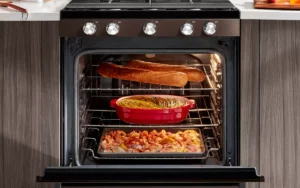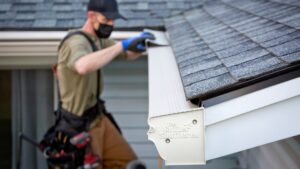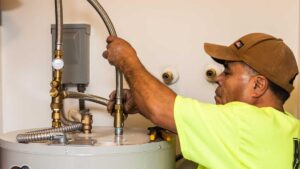When it comes to home safety, preventing electrical fires should be at the top of your list. Electrical fires can happen in an instant, but the good news is that many are entirely preventable with a little knowledge and some proactive steps. From overloaded circuits to faulty wiring, there are several potential hazards to watch out for. Let’s explore some fun and practical tips to keep your home safe and sound while ensuring your electrical system runs smoothly.
Understand Your Electrical System
The first step in preventing electrical fires is understanding your home’s electrical system. While you don’t need to be an electrician, it’s important to know the basics, like where your circuit breaker panel is located and how to turn off power to specific areas of your home. Familiarize yourself with the types of fuses or breakers your home uses and ensure they’re labeled correctly. This way, if something does go wrong, you can quickly shut off power to the affected area.
Don’t Overload Your Circuits
Overloading circuits is one of the most common causes of electrical fires. Every circuit in your home is designed to handle a specific load of electrical current. Plugging too many high-wattage appliances into a single outlet or power strip can exceed this limit, causing the circuit to overheat and potentially spark a fire.
To prevent overloading, spread out your appliances and devices across multiple outlets and circuits. Avoid using too many extension cords or power strips in one area, especially for high-energy appliances like space heaters, microwaves, or air conditioners. If you find that your circuit breakers frequently trip, it might be time to upgrade your home’s electrical system to accommodate your needs.
Inspect and Replace Damaged Cords
Frayed or damaged electrical cords are a major fire hazard. Over time, cords can become worn from regular use, pets chewing on them, or being pinched behind furniture. When a cord’s insulation is damaged, it exposes the wires inside, increasing the risk of a short circuit or an electrical fire.
Regularly inspect all the cords in your home, including those on appliances, lamps, and chargers. If you notice any fraying, cracks, or exposed wires, replace the cord immediately. For appliances, consider contacting the manufacturer for a replacement cord, or take the item to a professional for repair. Never use a cord that shows signs of damage.
Use the Right Bulbs in Fixtures
Using the wrong type or wattage of bulb in your light fixtures can also pose a fire risk. Fixtures are designed to handle a specific maximum wattage, and exceeding this limit can cause the fixture to overheat, potentially leading to a fire.
Always check the recommended wattage for your fixtures, which is usually indicated on a label inside the fixture or on the bulb socket. If you’re unsure, stick to lower-wattage bulbs or consider switching to energy-efficient LED bulbs, which use less power and generate less heat than traditional incandescent bulbs.
Unplug Appliances When Not in Use
Unplugging appliances when they’re not in use is a simple yet effective way to reduce the risk of electrical fires. Appliances, especially those with heating elements like toasters, coffee makers, and space heaters, can draw power even when turned off. Over time, this can lead to overheating and a potential fire.
Make it a habit to unplug small appliances after using them. Not only does this reduce fire risk, but it can also save on your energy bill. For larger appliances like TVs and computers, consider using a power strip with an on/off switch to easily cut power when the devices aren’t in use.
Keep Flammable Materials Away from Electrical Sources
Keeping flammable materials away from outlets, cords, and appliances is essential for preventing fires. Items like curtains, rugs, and paper should never be placed too close to electrical sources, especially those that generate heat.
Be mindful of where you position lamps, space heaters, and other heat-producing devices. Avoid placing them near curtains or on top of flammable surfaces like wooden furniture or carpets. Always keep a clear space around these devices to allow for proper ventilation and reduce the risk of overheating.
Install and Test Smoke Alarms
Smoke alarms are your first line of defense in detecting a fire, giving you and your family the crucial time needed to escape safely. Make sure you have smoke alarms installed on every level of your home, especially near bedrooms and in areas where electrical appliances are frequently used.
Test your smoke alarms monthly to ensure they’re working properly, and replace the batteries at least once a year. If your smoke alarms are more than 10 years old, it’s time to replace them with newer models. Consider installing interconnected smoke alarms, so when one goes off, they all do—alerting everyone in the house.
Be Cautious with Space Heaters
Space heaters are a common cause of electrical fires, especially during the colder months. These devices draw a significant amount of power and can easily overheat if not used correctly. When using a space heater, follow these safety tips:
- Place the heater on a flat, stable surface away from any flammable materials.
- Keep a three-foot safety zone around the heater, free of curtains, furniture, and other items.
- Never leave a space heater unattended, and turn it off when you leave the room or go to bed.
- Plug space heaters directly into a wall outlet, not a power strip or extension cord, to prevent overheating.
Consider Upgrading Your Electrical System
If your home is older, it might have an outdated electrical system that’s not equipped to handle modern energy demands. Old wiring, outdated fuse boxes, and lack of grounded outlets can all increase the risk of an electrical fire.
If you frequently experience issues like flickering lights, tripped breakers, or outlets that feel warm to the touch, it might be time to consult an electrician. Upgrading your electrical system can provide you with peace of mind, knowing that your home is equipped to handle your electrical needs safely.
Final Thoughts: Safety First, Always
Preventing electrical fires is all about being proactive and mindful of how you use and maintain your home’s electrical system. By following these tips, you can significantly reduce the risk of a fire and keep your home safe for you and your loved ones. Remember, when it comes to electricity, safety always comes first. So take a moment to check your cords, inspect your outlets, and ensure your home is equipped to handle the demands of modern living. Your home—and your peace of mind—will thank you!









